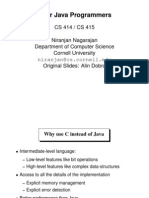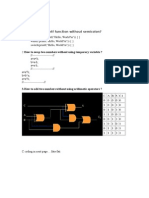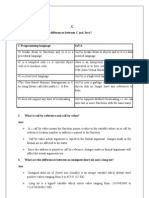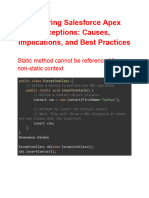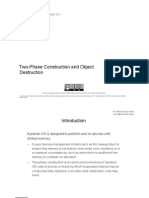0% found this document useful (0 votes)
15 views7 pagesC Questions
The document outlines various concepts and limitations of the C programming language, including array limitations, pointer types, memory allocation, and the use of typedef. It explains the differences between object files and executable files, the importance of return statements in functions, and the accessibility of variables in nested blocks. Additionally, it covers the use of preprocessor directives, static functions, and the distinction between character constants and string literals.
Uploaded by
foheke6586Copyright
© © All Rights Reserved
We take content rights seriously. If you suspect this is your content, claim it here.
Available Formats
Download as DOCX, PDF, TXT or read online on Scribd
0% found this document useful (0 votes)
15 views7 pagesC Questions
The document outlines various concepts and limitations of the C programming language, including array limitations, pointer types, memory allocation, and the use of typedef. It explains the differences between object files and executable files, the importance of return statements in functions, and the accessibility of variables in nested blocks. Additionally, it covers the use of preprocessor directives, static functions, and the distinction between character constants and string literals.
Uploaded by
foheke6586Copyright
© © All Rights Reserved
We take content rights seriously. If you suspect this is your content, claim it here.
Available Formats
Download as DOCX, PDF, TXT or read online on Scribd
/ 7










